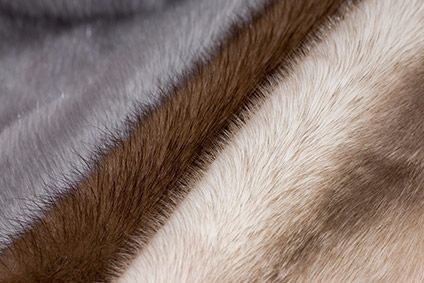
PETA US has become one of Farfetch’s first shareholders after the marketplace for luxury brands was listed on the New York Stock Exchange last week, in a move that will allow the animal rights organisation to attend the company’s annual meetings and officially urge it to end the sale of fur garments on its website.
A large number of global fashion houses have recently announced fur-free policies with Gucci, Versace, Michael Kors, DKNY, Donna Karan and Jimmy Choo going fur-free in the last year alone.

Discover B2B Marketing That Performs
Combine business intelligence and editorial excellence to reach engaged professionals across 36 leading media platforms.
Earlier this month British brand Burberry declared that it was ending its use of fur, and London Fashion Week announced its runway would be fur-free. Many other global designers such as Hugo Boss, Armani, Tommy Hilfiger, Stella McCartney and Vivienne Westwood have long-standing fur bans.
Meanwhile, Los Angeles could be the next major US city to implement a full ban on the sale of fur after its council voted unanimously on the proposal.
The proposed ordinance would make Los Angeles the largest city in the US to ban the sale of fur. San Francisco did so in March, following Berkeley last year and West Hollywood in 2013.
“The fur industry is headed for the history books, as modern, high-end designers are saying no to pelts and yes to beautiful and innovative vegan fabrics,” says PETA director of corporate projects Yvonne Taylor. “PETA US is taking the campaign against Farfetch’s website of horrors – which includes vile products made from foxes, coyotes, chinchillas, and badgers and even fur garments for children – straight to its boardroom and demanding a ban on fur sales.”

US Tariffs are shifting - will you react or anticipate?
Don’t let policy changes catch you off guard. Stay proactive with real-time data and expert analysis.
By GlobalDataWith PETA claiming opinion polls show that 95% of Britons would never wear real fur, and in the wake of so many top designers implementing policies against using fur in their collections, the animal rights organisation says there’s no excuse for Farfetch to continue to allow “unscrupulous labels to peddle cruelty on its site”.
Meanwhile, Farfetch does have an existing ethical sourcing policy under which it has pledged to stop listing products made from fur and endangered species on its website by 31 December 2019. After this date, there will no longer be any products made from fur or endangered species available on the website. Farfetch defines fur products are defined as products made entirely from furs or made with fur trims.
The company also requires all exotic skin products listed to have CITES certification and will not allow the listing of exotic skin unless permitted according to CITES (the Convention on International Trade in Endangered Species of Wild Fauna and Flora) and IUCN (International Union for Conservation of Nature).
Last year, PETA commended rival luxury retailer Yoox Net-A-Porter Group for banning the sale of fur across all of its websites in response to calls from customers.
“Although PETA has met with Farfetch executives, the company has yet to make the same compassionate and business-savvy decision,” the animal rights organisation says.





